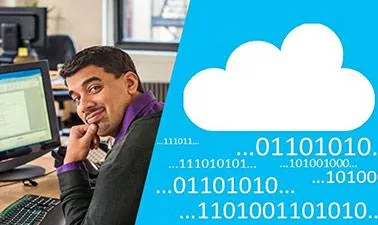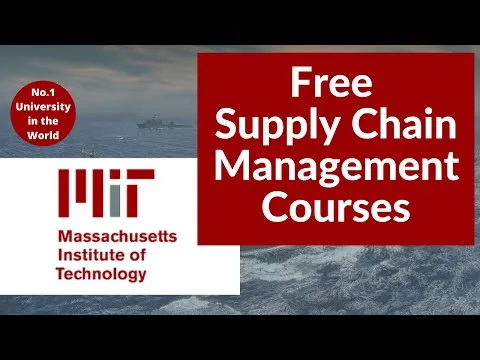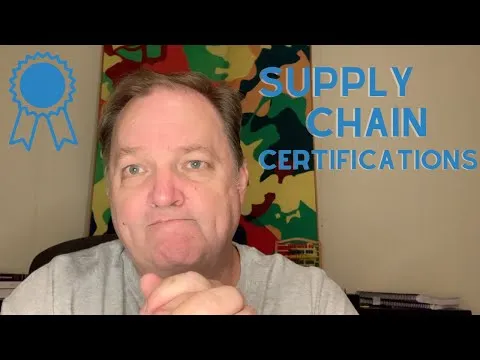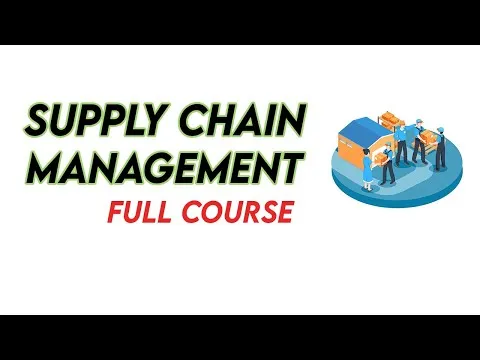
Supply Chain Planning 
This course introduces learners to the fundamentals of supply chain planning, including forecasting techniques and the construction of a Sales and Operations Plan. Through the course, learners will gain the skills to analyze demand data and project future demand, enabling them to effectively match supply and demand. ▼
ADVERTISEMENT
Course Feature
![]() Cost:
Cost:
Free
![]() Provider:
Provider:
Coursera
![]() Certificate:
Certificate:
Paid Certification
![]() Language:
Language:
English
![]() Start Date:
Start Date:
24th Apr, 2023
Course Overview
❗The content presented here is sourced directly from Coursera platform. For comprehensive course details, including enrollment information, simply click on the 'Go to class' link on our website.
Updated in [March 06th, 2023]
This course introduces students to the exciting area of supply chain planning. Students will learn different forecasting techniques, essential for building a Sales and Operations Plan. Through this course, students will gain the tools and techniques to analyze demand data, construct different forecasting techniques, and choose the most suitable one for projecting future demand. Students will gain an understanding of the importance of supply chain planning and how it can be used to match supply and demand.
[Applications]
Upon completion of this course, students can apply their knowledge to develop a Sales and Operations Plan for their own organization. They can also use the forecasting techniques they have learned to analyze demand data and project future demand. Additionally, they can use the knowledge gained to develop strategies for managing inventory and supply chain operations.
[Career Paths]
[Title]Logistics Management
[Description]Logistics management is the process of planning, implementing, and controlling the efficient, effective flow and storage of goods, services, and related information from point of origin to point of consumption for the purpose of conforming to customer requirements. This course will provide you with the knowledge and skills to understand the fundamentals of logistics management, including the principles of supply chain management, inventory management, transportation, warehousing, and customer service. You will also learn how to develop and implement effective logistics strategies to improve customer service, reduce costs, and increase efficiency.
[Title]Data Analytics
[Description]Data analytics is the process of examining data sets in order to draw conclusions about the information they contain, increasingly with the aid of specialized systems and software. This course will provide you with the skills to analyze data and draw meaningful insights from it. You will learn how to use data to identify trends, develop predictive models, and make decisions. You will also learn how to use data visualization techniques to present your findings in a clear and concise manner. With the knowledge and skills gained from this course, you will be able to make data-driven decisions and develop strategies to improve business performance.
[Education Paths]
1. Bachelor of Science in Supply Chain Management: This degree program provides students with a comprehensive understanding of the supply chain process, from procurement and production to distribution and customer service. Students learn how to develop and manage supply chain strategies, analyze data, and use technology to optimize operations. This degree is ideal for those looking to pursue a career in supply chain management, logistics, or operations.
2. Master of Science in Supply Chain Management: This degree program provides students with an advanced understanding of the supply chain process. Students learn how to develop and manage supply chain strategies, analyze data, and use technology to optimize operations. This degree is ideal for those looking to pursue a career in supply chain management, logistics, or operations.
3. Master of Business Administration in Supply Chain Management: This degree program provides students with a comprehensive understanding of the business side of supply chain management. Students learn how to develop and manage supply chain strategies, analyze data, and use technology to optimize operations. This degree is ideal for those looking to pursue a career in supply chain management, logistics, or operations.
4. Doctor of Philosophy in Supply Chain Management: This degree program provides students with an in-depth understanding of the supply chain process. Students learn how to develop and manage supply chain strategies, analyze data, and use technology to optimize operations. This degree is ideal for those looking to pursue a career in supply chain management, logistics, or operations research.
The demand for supply chain professionals is growing rapidly, and the development of new technologies and processes is creating new opportunities for those with the right skills. As the industry continues to evolve, those with a degree in supply chain management will be well-positioned to take advantage of these opportunities.
Course Syllabus
Simple Forecasting Methods, Naive Forecast and Cumulative Mean
Welcome to the exciting world of planning! This module introduces you to the professor who is teaching the courses in the Supply Chain Management Specialization. You will also construct forecasting models that enable you to predict future demand. By the end of this short module, you'll know what to expect in the course and hopefully be as excited to learn about Supply Chain Planning as I will be to teach you. In this module, learners will review two simple forecasting methods, the naive method, and the cumulative mean. Finally, you will create forecasts of your own based on a data set and provide the correct answers in the quiz.Forecast Accuracy and Moving Average
In this module, learners will cover two more sophisticated forecasting methods, the moving average and exponential smoothing.Exponential Smoothing and Forecast Selection
In this module, you will master one more forecasting method - exponential smoothing. In addition, you will learn how to pick the best forecasting approach and what to do with the forecast once it is implemented.Supply Chain Planning
In this module you will put your new forecasting skills to the test. You will analyze a real-life dataset and make recommendations on the different forecasting methods.Pros & Cons

Clear and concise content.

Insightful notes.

Great instructor with inspiring energy.

Teaches different types of forecasting.

Technical issues ignored.

Poorly explained practical exercises.

Quizzes lack quality assurance.

Excel answers not accepted.
Course Provider

Provider Coursera's Stats at AZClass
Discussion and Reviews
0.0 (Based on 0 reviews)
Explore Similar Online Courses

Implementing Real-Time Analytics with Hadoop in Azure HDInsight

Master KnockoutJS : Knockout JS - JavaScript MVVM

Python for Informatics: Exploring Information

Social Network Analysis

Introduction to Systematic Review and Meta-Analysis

The Analytics Edge

DCO042 - Python For Informatics

Causal Diagrams: Draw Your Assumptions Before Your Conclusions

Whole genome sequencing of bacterial genomes - tools and applications

MIT Free Supply Chain Management Courses

What Are Good Supply Chain Certifications?


Start your review of Supply Chain Planning